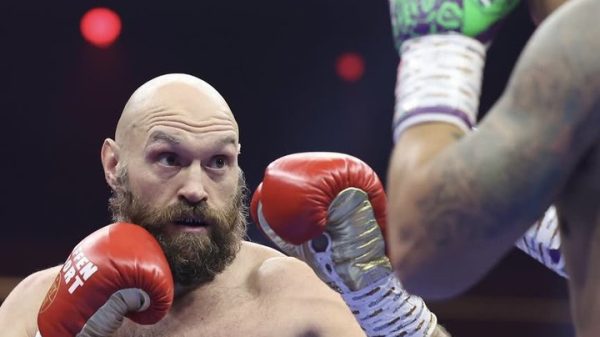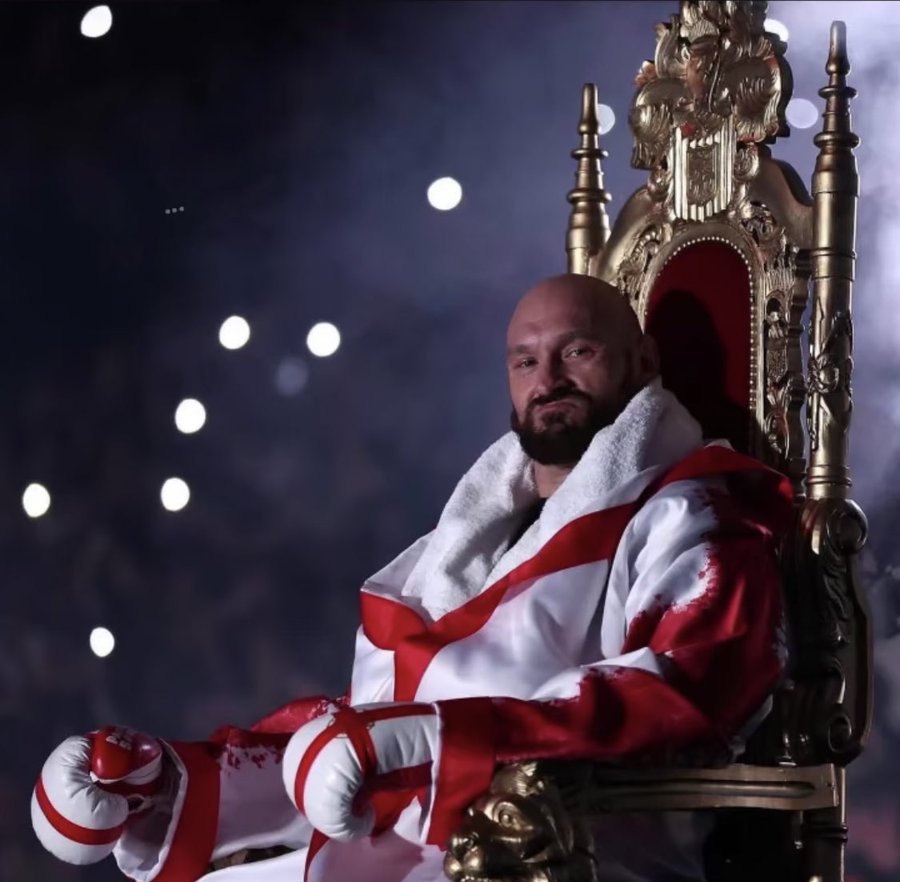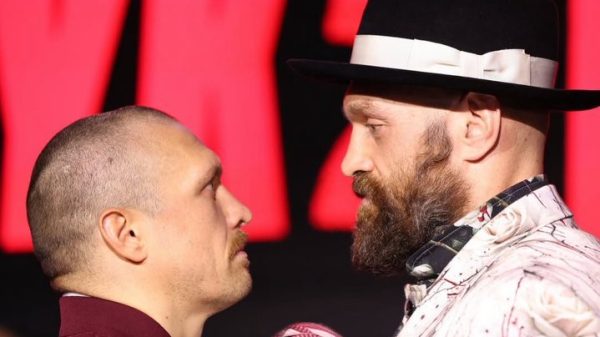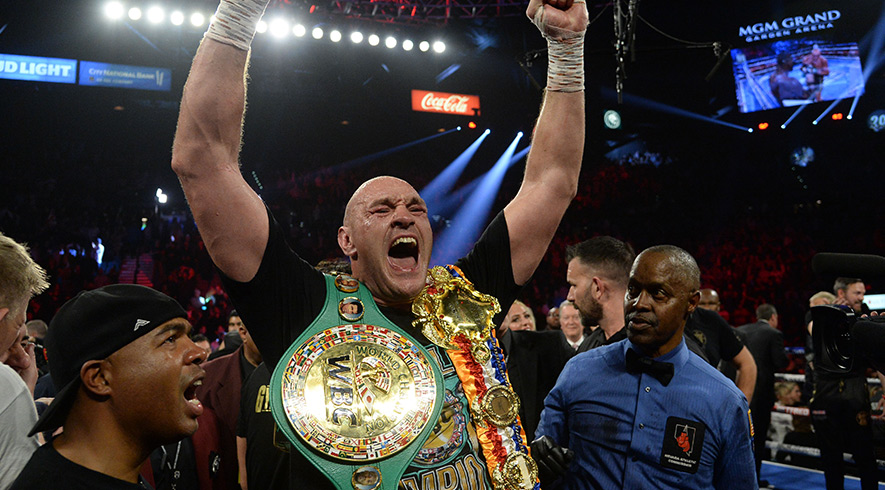By: Charles Jay
They aren’t the first organization to do it. And they certainly won’t be the last. But Oscar De La Hoya’s Golden Boy Promotions intends to be the outfit that makes the greatest strides in developing the ability to capitalize on presenting professional boxing over the internet.
They have announced a partnership with Facebook in which they will present a series of live fight cards, free of charge, through Facebook Watch, the branded live streaming mechanism the mammoth social network has. It all begins on August 11 with a WBA featherweight title fight between Jesus Rojas and JoJo Diaz, taking place in Hollywood, CA. They will also go the next week from the Sands in Bethlehem, PA. And from there it will continue.

Oscar De La Hoya
There has been a traditional business model for years in boxing, with slight variations. You sell tickets or try to get a casino to pay for the show, and then you see if you can make a deal to go on cable TV. If it’s sufficiently big enough, then pay-per-view (PPV) becomes a possibility. But you probably knew all that already.
Well, casino rights fees have dried up considerably from what they used to be. Television money isn’t spread around as much either, and with Al Haymon having taken a significant position through time buys instead of selling the product itself, you have to wonder how anxious some of these non-premium networks are going to be about giving up money in the future, outside of a couple of vendors.
We’ve seen some trips “out of the box” that might just stick. ESPN Plus is making some fights available through a paid app (also available through other platforms); DAZN is doing live streaming and has a deal in place with Eddie Hearn, the promoter of Anthony Joshua. In one conversation with me a while back, Top Rank’s Bob Arum envisioned that the Chinese, with a billion or so cell phones on hand, might pay a small fee for an attractive product (preferably including one of their countrymen) and that would add up to huge money. Twitter showed a championship fight a couple of years ago, through it was more of an experiment than anything else. There are services in operation right now that show boxing on a pay-per-view basis online, although I’m not sure what their numbers are. Certainly the direct-to-consumer model (“over the top,” as they say) is at some point going to be a major staple of what HBO or Showtime PPV does. It would appear inevitable.
Not everything is going to work. The point, though, is that different methods of distributing the programming are being explored.
And even though Facebook has done live events, like baseball games, what Golden Boy is doing represents the exploration of a legitimate frontier in this particular sport. It can be a winner. Like television, it offers the chance for the same outlet to market and exhibit boxing programming, provided of course they can cultivate an audience. But you see, over the social media channels, there is that built-in mechanism as well. And what is incorporated in this is the ability to get immediate fan feedback and interaction. So in a sense, a lot of this is self-contained. And obviously, the programs are adaptable to mobile devices, which is where the audience is going. Remember, people are moving away from cable, and toward other services. You have to get out front and go where the eyeballs are.
Golden Boy will not only have live fights, but also original programming in support of it; “shoulder” programming, if you will. You can bet that they will be promoting their pay-per-view telecasts as well, and this first fight comes just in time to push the Canelo-GGG fight on September 15. And in order to do this, they don’t have to get TV time cleared, or buy it, as Haymon has.
As part of the deal, Golden Boy is establishing a partnership-within-a-partnership, with Main Events (the New Jersey-based promoter) coming on board, and the CEO of that company, Kathy Duva, hit on something very important when she said, “For too long, promotional companies have been at odds over a limited number of television dates. We look now to a future with Facebook with unlimited opportunity, where promoters can work together to best serve the interests of the fighters and fans all over the world.”
Yes, in time things like this are going to flip the field.
Putting the product online in creative ways can be a great enabler for any number of promotional organizations. That’s because it is the most democratic distribution channel that has come along. Sure, not everybody is going to have a “partnership” with an entity such as Facebook, like Golden Boy has. But anyone has the capability to stream with Facebook Live, and then it just comes down to how many people can be driven to the “telecast.”
Years ago, when putting together a sponsorship proposal, we used to say that a cable channel, or combination of channels, got into X-million homes. Of course, that didn’t mean that X-million homes were going to tune in; it just meant the show had the capability to reach that many. Well, as long as you want to get theoretical about it, an online broadcast has the ability to reach almost every home on earth, or at least the vast majority, right?
That doesn’t mean there is a potential bonanza out there, naturally, but the doors can indeed be unlocked. The real opportunity for small and mid-level promoters probably doesn’t lie in online pay-per-view, truth be told, although I guess that if someone is going to produce a telecast anyway, it could fall into the category of “found money.” But this is more likely a play for enhanced sponsorship, using something similar to the over-the-air TV model (and the one Golden Boy is using), where the fights are free to viewers. If you can get a lot of targeted eyeballs to a piece of content, there should be a way to monetize that. It all depends how creative one wants to be.
Those who can somehow command a presence online, with regard to the actual presentation of the product, should be able to get a leg up on their competitors.
Remember, the technology isn’t going backward. And it’s going to allow even small, independent producers the chance to avail themselves of geo-tracking, instant viewer surveys and precise audience measurements, which provides plenty of ammunition, from the standpoint of data, to take to any sponsor. The challenge as we move forward is that whoever wants to hit big online will have to reach out and cultivate younger viewers, as MMA has done. And technology may be the mechanism through which to do it. Again, it comes down to who is creative about it.
I, for one, am rooting for this Golden Boy venture to succeed, not necessarily for what it will do for the company, but what it might do for an industry. And even in this business, where “schadenfreude” is often the order of the day, I think everyone else might do well to root for them too.









